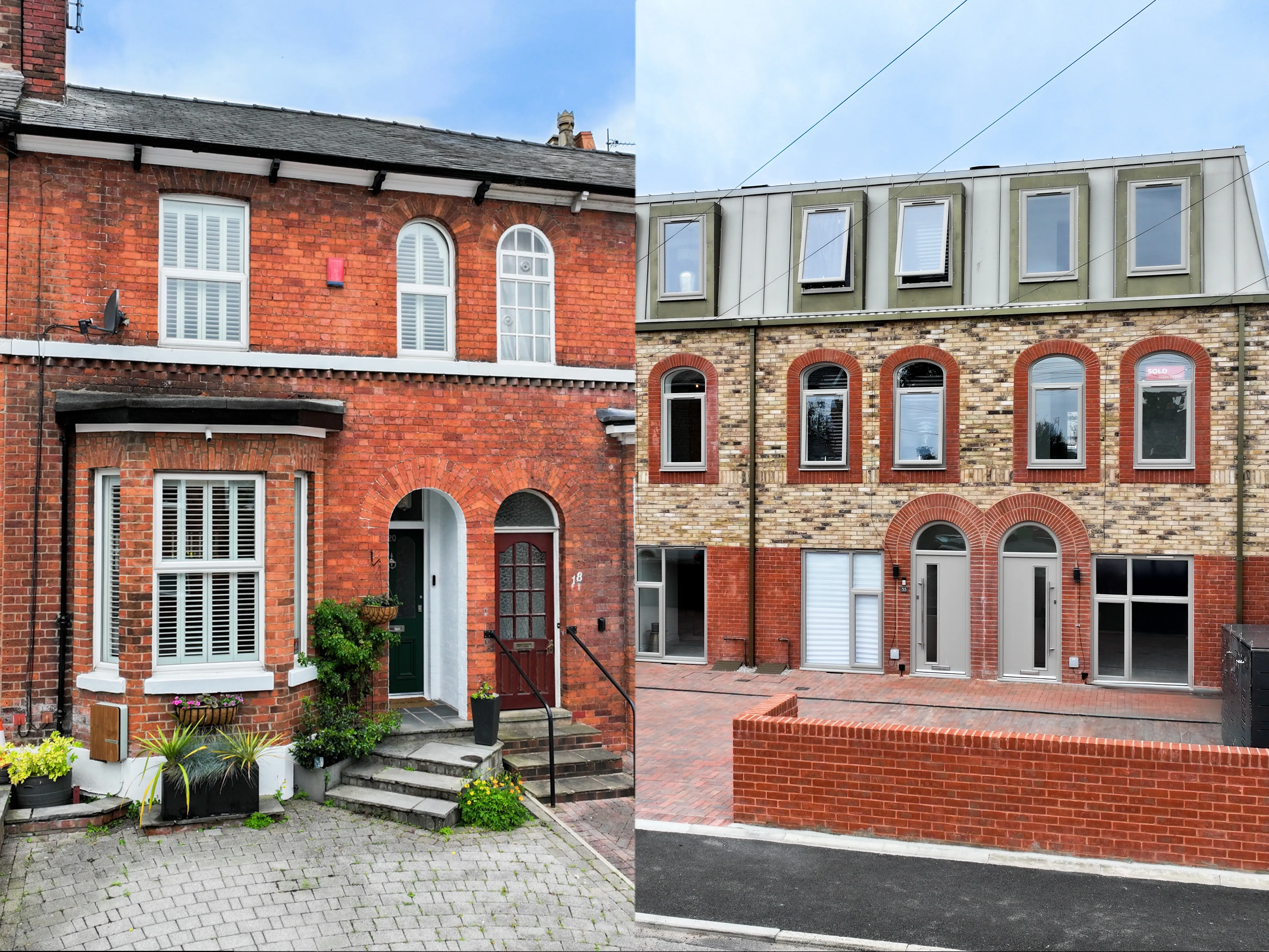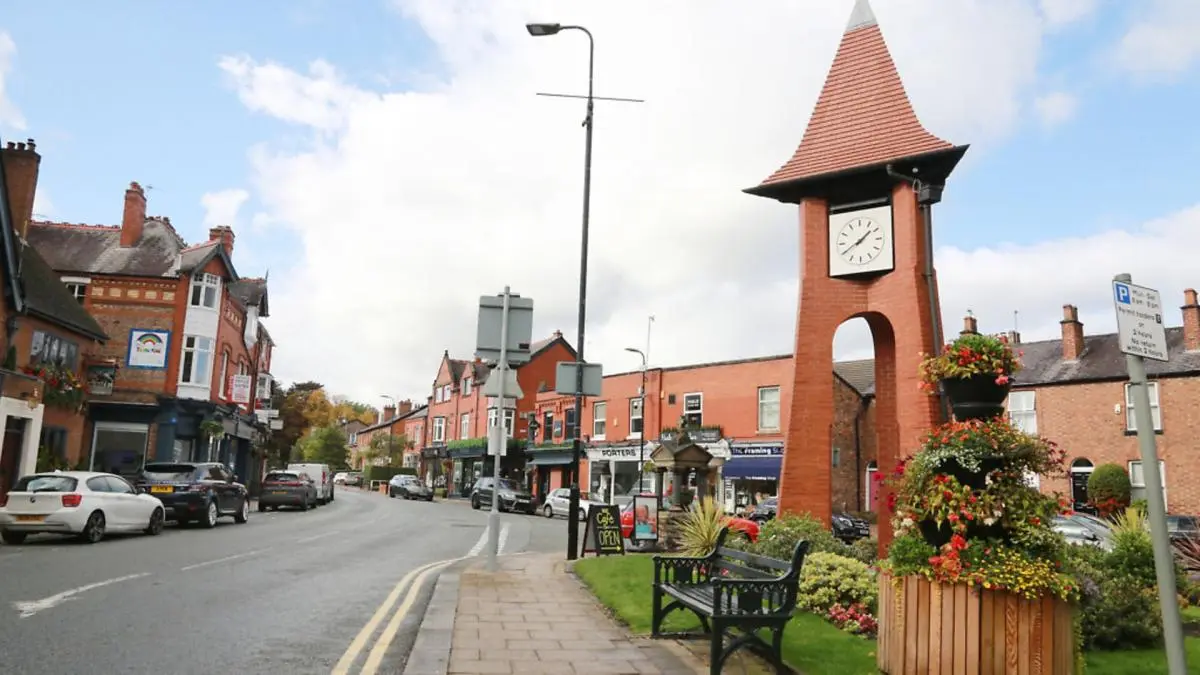Two-Year Mortgage Rates Drop Below Five-Year Deals for First Time Since 2022
For the first time since the aftermath of Liz Truss’s September 2022 “mini” Budget, the average interest rate on a two-year fixed mortgage has fallen below its five-year equivalent. According to data from Moneyfacts, as reported by the Financial Times (Al-Khalaf, 2025), the average two-year rate now stands at 5.00%, compared to 5.01% for a five-year deal.
This reversal reflects financial markets’ expectations that interest rates will dip further in the near term, but not dramatically. Pete Dockar, Chief Commercial Officer at Generation Home, explained that “shorter-term mortgages are once again cheaper than five-year deals — the historical norm” (FT, 2025).
For homebuyers in areas like Hale, Altrincham, and Manchester City Centre, this could mean renewed interest in shorter-term mortgage products, particularly among those keen to capitalise on lower initial costs.
Bank of England Cuts Base Rate to 4% – Lowest Since March 2023
The Bank of England has cut the base rate from 4.25% to 4%, marking its lowest level in over two years (BBC News, Jordan, 2025). This is the fifth rate cut since August 2024, but the decision was narrowly reached after two rounds of voting within the Monetary Policy Committee.
Governor Andrew Bailey emphasised that while rates are likely to continue falling, cuts will be “gradual and careful,” given that inflation is still double the Bank’s 2% target. Inflation is expected to peak at 4% in September 2025, partly due to increased food prices linked to wage costs and global supply issues (BBC, 2025).
For households in Manchester’s commuter belt, including those residing in homes in Hale and Altrincham, this means:
- Tracker mortgage holders could see immediate relief in monthly repayments.
- Fixed-rate borrowers nearing the end of their terms may find shorter deals more appealing.
- Savers may face reduced returns on deposit accounts.
Why Shorter-Term Mortgages Are Regaining Appeal
Historically, borrowers have paid a premium for the certainty of longer-term fixed rates. But with rates expected to gradually ease, many may opt for two-year fixes to benefit from potential further reductions when they remortgage.
In practical terms, on a standard variable rate mortgage of £250,000 over 25 years, the latest base rate cut translates to about £40 less per month (BBC, 2025). While modest, this saving could be significant for households already facing rising living costs.
What This Means for the Hale and Altrincham Property Market
As long standing local estate agents, we have observed that interest rate shifts often affect buyer sentiment as much as affordability. In Hale and Altrincham, where property values tend to be above the UK average, even small changes in mortgage rates can influence the speed of transactions and the types of buyers entering the market.
- First-time buyers may see improved affordability for entry-level homes.
- Upsizers could be more confident in taking on slightly larger mortgages if they choose shorter terms.
- Downsizers and investors might be less affected by borrowing costs but could benefit from increased buyer activity.
Spotlight on the Broader Manchester Property Market
Manchester’s housing market has remained resilient through recent economic uncertainty, supported by strong rental demand, a growing population, and ongoing regeneration projects. However, borrowing costs have been a major factor in the slightly slowing pace of sales since 2023.
The base rate cut to 4% could stimulate renewed buyer activity, particularly in:
- Manchester city-centre apartments, where younger buyers and investors have been most sensitive to mortgage costs.
- Family homes in suburbs like Didsbury, Chorlton, and Sale, where buyers often take on larger mortgages and stand to benefit more from even modest interest rate reductions.
- Commuter-friendly areas like Hale, Altrincham, and Wilmslow, which attract professionals seeking quick access to the city alongside a high quality of life.
While Manchester prices have not seen the sharp declines some predicted, transaction volumes have been patchier. Lower short-term rates could help bridge affordability gaps for first-time buyers and upgraders, particularly if lenders adjust their affordability stress tests in line with market expectations.
Our Outlook
While lower rates are welcome news for many borrowers, experts caution against assuming rapid or deep cuts in the near term. As Rachel Springall of Moneyfacts noted, “the future expectation of loads more rate cuts isn’t really there right now” (FT, 2025).
Economic uncertainty, wage pressures, and slow GDP growth mean the Bank of England is treading carefully. For property buyers and homeowners in the Manchester and Cheshire areas, the takeaway is clear: monitor rate changes closely, consider the trade-off between shorter and longer fixed terms and plan for a range of scenarios.
FAQs
Will mortgage rates keep falling through 2025?
Possibly, but cautiously. Analysts predict rates may edge lower if inflation and economic indicators remain favourable.
What are the savings for borrowers on tracker rates?
Tracker mortgage holders may save approximately £29 a month, while those on SVRs could save around £14 - savings that could be quite impactful over time (Yorkshire Post).
Are sub-4% fixed-rate deals back on the table?
Yes, some lenders, like Barclays and Santander, now offer two- and five-year fixed deals at 3.99%, supported by reduced swap rates and fierce competition
Sources:
- Al-Khalaf, L. (2025, August 8). Two-year UK mortgage rates fall below five-year rates for first time since 2022. Financial Times. https://www.ft.com/content/68e0568f-7338-4664-ae9f-1fbb019af7ff
- Jordan, D. (2025, August 7). Interest rates cut to lowest level in more than two years. BBC News. https://www.bbc.co.uk/news/articles/c5yprwyxjlxo
Need a property valuation?

Director
0161 543 0310









